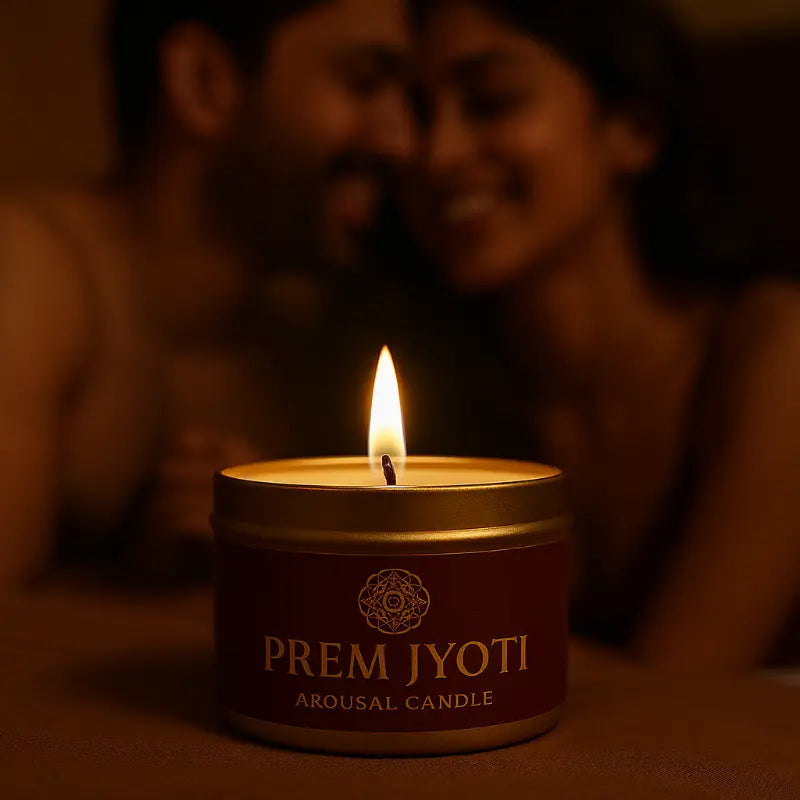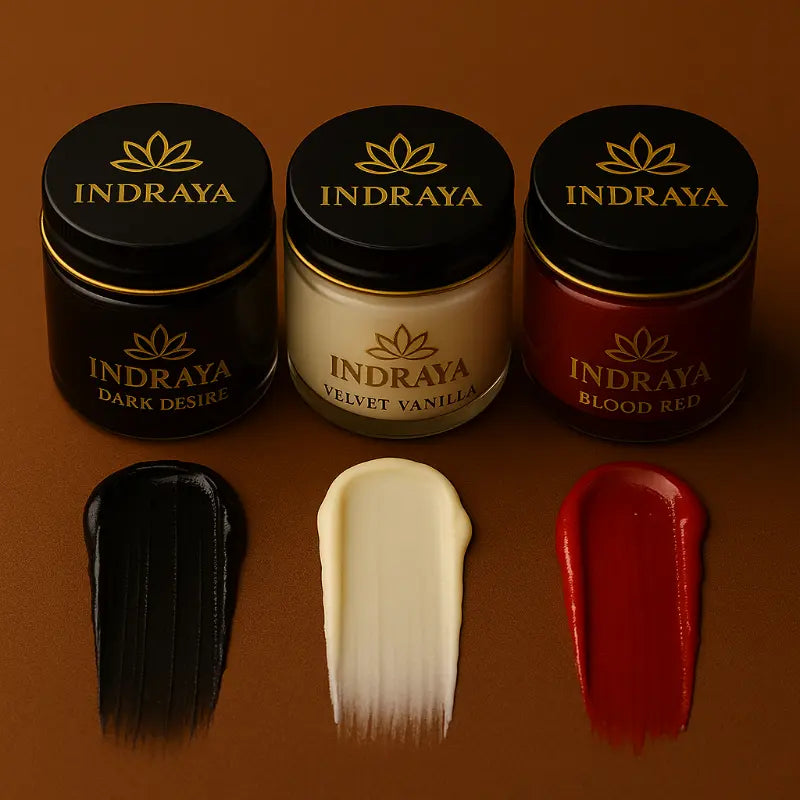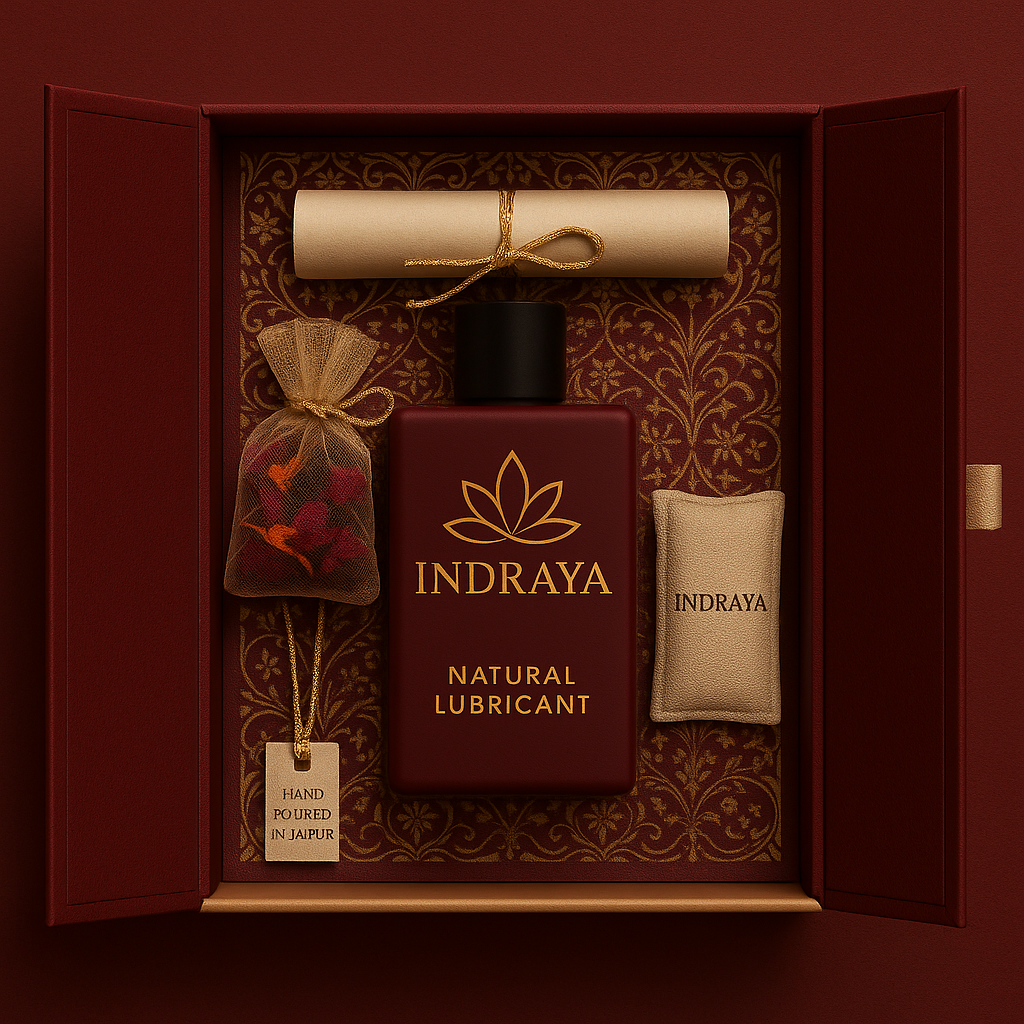The science of aromachology: how scents influence desire
Share
What is aromachology?
Aromachology is the psychology of smell. It studies how scent influences states like calm, comfort, focus and romantic interest. It is different from aromatherapy, which often targets therapeutic outcomes. In practice they overlap, yet aromachology focuses on the mood pathway and how specific notes prime the mind for connection.
Aromachology looks at how aromas shape feelings and behaviour. When we talk about aromachology for intimacy, we explore how fragrance can calm the mind, invite tenderness and set the stage for desire. This guide blends neuroscience basics with India’s aromatic heritage so partners can create slow, sensual evenings that feel natural and safe.
Why it matters for intimacy?
- Scent reaches the brain faster than sight or sound for emotional tagging.
- Pleasant fragrance can lower perceived stress so touch feels safer.
- Repeating a scent during couple time teaches the brain to link that aroma with closeness.
How smell talks to the brain?
When you inhale, volatile aroma molecules reach the olfactory receptors high in the nose. Signals travel to the olfactory bulb, then to limbic regions like the amygdala and hippocampus. These areas process emotion and memory, which is why a familiar aroma can change mood in seconds and unlock vivid recollections. Scientists sometimes call this the Proust effect.
Key idea- Scent is a fast mood primer. Use it to arrive, relax and open the heart before touch.
Evidence snapshot: scents and states
Research on aroma and mood is growing. Findings vary by study design, but a few patterns show up across small human trials and reviews. Use them as gentle guides, not medical claims.
- Lavender appears to reduce anxiety in several trials. Inhalation and massage show promise for easing state anxiety and lowering heart rate in some settings.
- Ylang ylang has been linked with reduced blood pressure and a more relaxed subjective state in small studies.
- Neroli inhalation has been associated with lower systolic blood pressure and calmer mood in short term lab studies.
- Rose is consistently rated as comforting and tender. A clinical trial also explored rose oil for sexual function in a specific medical context. For healthy couples, treat rose as a mood softener rather than a treatment.
What this means for couples?
- Use calming notes to transition from day to evening.
- Layer warm florals and woods for closeness.
- Keep doses low and sensual. Let the room carry the hint.
You Might Also Like to Read
Aromachology for intimacy: a simple ritual arc
1) Arrive and settle
Diffuse 4 drops lavender, 2 drops rose, 1 drop cedarwood in water for 15 minutes. Sit back to back, breathe in for 4 and out for 6.
2) Warm and invite
Blend 30 ml carrier oil with 6 drops sandalwood, 2 drops ylang ylang, 2 drops vanilla absolute. Massage shoulders, arms and legs only. Avoid the most sensitive areas.
3) Linger and integrate
Sip rose petal tea. Write one line each about what felt nourishing. Hold hands in stillness for one minute.
For external use. Patch test first. Stop if irritation occurs.
Safe use and dilutions
Essential oils are concentrated. Respect the drop and the skin.
- Body massage oils 1 to 3 percent total essential oils in carrier.
- Face or sensitive areas 0.5 to 1 percent only. Avoid applying to the most sensitive areas.
- Citrus safety keep expressed bergamot under 0.4 percent and prefer furocoumarin free citrus if skin may see sun.
- Always dilute in carriers like sesame, jojoba or sweet almond. Do a 24 hour patch test on the inner arm.
Scent families that often support desire
- Calming arrival- lavender, chamomile, vetiver, cedarwood.
- Tender warmth- rose, vanilla, tonka, benzoin.
- Sensual curiosity- jasmine, ylang ylang, sandalwood, tuberose.
- Playful lift- bergamot FCF, neroli, ginger in small amounts.
Tip: Keep a scent journal. Note which blends help you feel safe, open, playful or bold. Repeat what works.
Pheromones and other myths
Human evidence for perfume pheromones is mixed. You can think of aromachology as a more reliable path. Choose scents that calm stress and signal warmth or curiosity. Desire is relational. Mood, consent and communication matter more than a single note.
FAQs
What is aromachology in simple words?
It is the study of how scent shapes feelings and behaviour. In intimacy, it helps partners create the right mood.
Which scents are best for desire?
Try calming notes to arrive, then add a touch of jasmine, ylang ylang or sandalwood for a sensual glow. Rose and vanilla help many people feel safe and open.
Can essential oils be used directly on intimate areas?
No. Keep blends to shoulders, back and legs. For external use only and patch test.
Is there proof that scent changes mood?
There are small human trials and reviews showing aroma can reduce anxiety and influence physiological markers. Effects vary, which is why we treat fragrance as a gentle aid, not a cure.
References and further reading
- Harvard Gazette on scent, memory and emotion
- Frontiers review on odor and emotion
- Lavender inhalation and anxiety evidence review
- Ylang ylang inhalation and blood pressure
- Neroli inhalation trial
- Rose oil clinical review and SSRI study
- Citrus phototoxicity guidance and safe use
Awaken your senses with Indraya & Join the Indraya community to learn how ancient Indian wisdom can transform & Enhance your intimacy.
Follow @indraya.in




